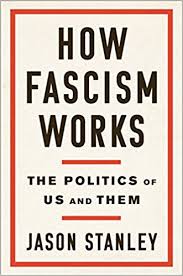I had a blog post all ready to go, and then I threw it out and wrote this. (I write quickly when I feel annoyed.)
People are constantly telling me some version of:
Others tell me some form of, “I wish I had your faith that the system is working as it should.”
I am the writer. If my writing is misunderstood, I will take responsibility and revise. I, therefore, reframed my Merrick Garland Post. (Check out the changes in green, including several updates from this week.)
First, I’ll talk about “faith” versus “confidence in democratic institutions.” Then I’ll do a summary of the changes to the larger post.
I. “Faith” versus “confidence in democratic institutions.”
There are not many sources of authority for government.
Sociologist Max Weber, in his classic essay “Politics as a Vocation,” outlined three sources of authority that underlie governments.
First is what he calls “traditional” authority, which underlies monarchies.
Second is rule of law, the authority underlying democracies. Rule of law requires an adherence to facts and what sociologists call factuality. This is where we follow the law instead of the commands of an autocrat.
The third is what Weber calls a “charismatic leader.” Today, we might say “strongman” or “demagogue.” The strongman form of government rejects facts and takes as true whatever the strongman or demagogue says. This is the source of authority underlying dictatorships and fascist regimes. This form of government is based on lies and myths. It also has a lot of appeal. Autocracy moves swiftly. It’s fast-moving and thrilling. The purpose of government isn’t to help people–it’s to land blows on the enemy. Yale professor Jason Stanley calls it the Politics of Us v. Them.
 Autocracy sets up a hierarchy, which also appeals to a lot of people. Under the 19th century American patriarchy, society was ordered with white men at the top and Black women at the bottom. People embrace hierarchy because they think nature naturally forms a hierarchy. They see people demanding equality as trying to displace them.
Autocracy sets up a hierarchy, which also appeals to a lot of people. Under the 19th century American patriarchy, society was ordered with white men at the top and Black women at the bottom. People embrace hierarchy because they think nature naturally forms a hierarchy. They see people demanding equality as trying to displace them.
During the early part of the 20th century, the old empires and monarchies broke down. This set up a struggle for control between those who preferred a charismatic leader (or demagogue, or autocrat, whichever term you prefer) and rule of law.
If people lose confidence in democratic institutions or if they take steps to weaken democratic institutions, autocracy can set in. In fact, in the 21st century, most autocracies take hold after democratic institutions are systematically weakened.
Former FBI special agent Clint Watts reminds us that a goal of Russian active measures is to get people to lose confidence in democratic institutions. When people lose confidence in democracy, they become apathetic and cynical, and then it’s all over. If people are exhausted from panic and despair, how can they organize and mobilize and do what needs to be done to make democracy work?
One point I keep making is that rule of law is difficult. It’s frustrating. It strives for fairness but isn’t always fair. Perfect fairness is not possible on Earth, where human beings are flawed, and there is constant pushback from those who prefer autocracy. This causes people to grow cynical and reject democracy. But the only real alternative is autocracy.
“Confidence in democratic institutions” doesn’t mean “faith that we always get what we want” or “faith that courts will reach the right results.”
Confidence in democratic institutions means that we have confidence that democracy is the best form of government, and the alternatives are worse, so we care about democratic institutions enough to defend them so that they don’t disappear.
“Faith” is the counterpart of the “someone do something” theory of democracy. Both are wrong. Democracy is hard work and it’s up to each of us.
People call me an optimist (another source of annoyance for me.)
How can I be an optimist when so many of the people who should be defending rule of law, the people who claim to hate Trump and fascism, are spending most of their time attacking the very people who are actually defending rule of law (like Merrick Garland)?
What Biden set out to do in his presidency is to prove that democracy and rule of law can work. Whether he will persuade enough people remains to be seen.
One theory I have is that a lot of social media accounts grew large during the Trump era because they were really good at attacking Trump. They built confidence among Trump critics. Some of these accounts don’t actually understand how democratic governments work, so now that we have a democratic administration, they are attacking from frustration. Others are attacking because it’s literally all they know how to do. (Some are attacking because fear-mongering is clickbait. Just ask the producers of Fox.)
Democracy is not a religion, so it’s not about faith. It’s government by the people, and we are the people, so it requires a lot of work.
II. DOJ Investigation Updates
I did an overall restructuring of that larger blog post to emphasize that I am drawing conclusions from evidence, and weighing evidence, and not advocating that we “trust the system.”
Here is a summary of the updates from the week:
April 8: Another Proud Boy / Rally Planner pleaded guilty
Charles Donohoe, another of the Proud Boys leaders who was indicted in February along with Enrique Tarrio (chairman of the Proud Boys) has now changed his plea and is pleading guilty. He admitted to conspiring to help organize an attack on Congress by supporters of President Donald Trump and to assaulting law enforcement officers. He believed that storming the Capitol would achieve the group’s goal of stopping the government from carrying out the transfer of presidential power. In other words, he was part of the planning (and part of the attack) and he admitted that the group’s goal was to stop the government from carrying out a peaceful transfer of power.
Ali Alexander, a guy who was heavily involved in planning the Stop the Steal rally (he wasn’t at the Capitol) revealed through his lawyer that he recently received a subpoena from a federal grand jury that is seeking information, including information about members of the executive and legislative branches who were involved with the insurrection itself or the plan to obstruct the transfer of power.
The significance of this subpoena is that it is evidence that the DOJ is looking at top-level people.
Under the heading “Nobody can promise a particular outcome” I added this:
Remember those crazies who plotted to kidnap Michigan Gov. Whitmer? At the conclusion of their trial, the jury acquitted two of the men, and the jury hung on two more. (A hung jury means that the jury could not reach a unanimous decision.) So two of the men walk free. Two will probably be retried.
All kinds of things can go wrong at trial. Trials are unpredictable. Juries are unpredictable.
People demand indictments and think if every guilty person isn’t imprisoned, the system is a failure. Juries are unpredictable. Sometimes the defense succeeds. Sometimes a person can be guilty but there just isn’t enough admissible evidence to prove it. (Evidence that is admissible in court, as opposed to Google Evidence.)
(I included how some vocal former prosecutors who have been slamming Garland as lazy with no intention of reaching higher than ground level insurrectionists, responded to this news) This is one of the former prosecutors with a large social media following.
Apparently, according to this former prosecutor, all of this should have been accomplished the month Garland took office. This particular former prosecutor argues that because this wasn’t accomplished immediately, Garland is responsible for all the damage these people have done to our democracy while Garland (according to this person) was idle.
Also on April 8, a former prosecutor with almost 600K followers really riled people with this one:
I read the comments to that tweet, and he had people purple with anger at the idea that nothing has yet been done. At best, he was sloppy with language (lawyers should not be sloppy with language.) At worst, he distorted the facts: Lots of people have been indicted. I’ve been doing a lot of thinking lately about how social media spreads disinformation and conspiracy theories on both sides of the political spectrum. (If you missed it, see this post.)
Meanwhile, J.J. would like to show off his new threads:
I just don’t think that it does much for his image as a ferocious guard dog. (That chair is his lookout post. He keeps a sharp eye on the neighborhood.)









